第17章 V. MASCULINE LITERATURE.(4)
A young woman faces life--the seventy year stretch remember; and is given the same books--with restrictions. Remember the remark of Rochefoucauld, "There are thirty good stories in the world and twenty-nine cannot be told to women." There is a certain broad field of literature so grossly androcentric that for very shame men have tried to keep it to themselves. But in a milder form, the spades all named teaspoons, or at the worst appearing as trowels--the young woman is given the same fiction. Love and love and love--from "first sight" to marriage. There it stops--just the fluttering ribbon of announcement, "and lived happily ever after."
Is that kind of fiction any sort of picture of a woman's life? Fiction, under our androcentric culture, has not given any true picture of woman's life, very little of human life, and a disproportioned section of man's life.
As we daily grow more human, both of us, this noble art is changing for the better so fast that a short lifetime can mark the growth. New fields are opening and new laborers are working in them. But it is no swift and easy matter to disabuse the race mind from attitudes and habits inculcated for a thousand years. What we have been fed upon so long we are well used to, what we are used to we like, what we like we think is good and proper.
The widening demand for broader, truer fiction is disputed by the slow racial mind: and opposed by the marketers of literature on grounds of visible self-interest, as well as lethargic conservatism.
It is difficult for men, heretofore the sole producers and consumers of literature; and for women, new to the field, and following masculine canons because all the canons were masculine; to stretch their minds to a recognition of the change which is even now upon us.
This one narrow field has been for so long overworked, our minds are so filled with heroes and heroes continually repeating the one-act play, that when a book like David Harum is offered the publisher refuses it repeatedly, and finally insists on a "heart interest" being injected by force.
Did anyone read David Harum for that heart interest? Does anyone remember that heart interest? Has humanity no interests but those of the heart?
Robert Ellesmere was a popular book--but not because of its heart interest.
Uncle Tom's Cabin appealed to the entire world, more widely than any work of fiction that was ever written; but if anybody fell in love and married in it they have been forgotten. There was plenty of love in that book, love of family, love of friends, love of master for servant and servant for master; love of mother for child; love of married people for each other; love of humanity and love of God.
It was extremely popular. Some say it was not literature. That opinion will live, like the name of Empedocles.
The art of fiction is being re-born in these days. Life is discovered to be longer, wider, deeper, richer, than these monotonous players of one June would have us believe.
The humanizing of woman of itself opens five distinctly fresh fields of fiction: First the position of the young woman who is called upon to give up her "career"--her humanness--for marriage, and who objects to it; second, the middle-aged woman who at last discovers that her discontent is social starvation--that it is not more love that she wants, but more business in life: Third the interrelation of women with women--a thing we could never write about before because we never had it before: except in harems and convents: Fourth the inter-action between mothers and children; this not the eternal "mother and child," wherein the child is always a baby, but the long drama of personal relationship; the love and hope, the patience and power, the lasting joy and triumph, the slow eating disappointment which must never be owned to a living soul--here are grounds for novels that a million mothers and many million children would eagerly read: Fifth the new attitude of the full-grown woman who faces the demands of love with the high standards of conscious motherhood.
There are other fields, broad and brilliantly promising, but this chapter is meant merely to show that our one-sided culture has, in this art, most disproportionately overestimated the dominant instincts of the male--Love and War--an offense against art and truth, and an injury to life.